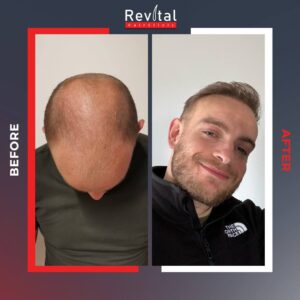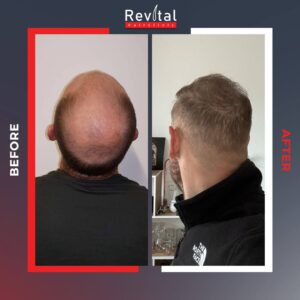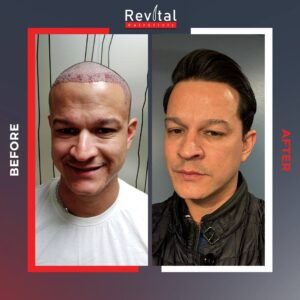Am I a Suitable Candidate for Sapphire Hair Transplantation Treatment?
Hair loss can be a frustrating and confidence-reducing experience, but with advancements in hair restoration techniques, solutions like Sapphire Hair Transplantation are becoming increasingly popular. However, before you decide to undergo this treatment, it’s important to assess whether you’re a suitable candidate for the procedure.
In this article, we’ll guide you through the key factors that determine whether Sapphire FUE hair transplantation is right for you. By understanding these criteria, you’ll be able to make an informed decision about your hair restoration journey.
What is Sapphire Hair Transplantation?
Sapphire FUE (Follicular Unit Extraction) is a highly advanced technique in hair restoration that utilizes sapphire blades to make small, precise incisions where hair follicles will be implanted. Compared to traditional FUE, the sapphire blade ensures finer, more accurate incisions, leading to minimal scarring, faster recovery, and natural-looking results. It is often considered one of the best methods for individuals looking for a high-density hair transplant with a natural appearance.
Now, let’s explore whether you’re a suitable candidate for Sapphire FUE treatment.
Factors That Determine Suitability for Sapphire Hair Transplantation
There are several factors that determine whether you’re a good candidate for Sapphire hair transplantation. These factors involve your general health, the extent of your hair loss, your donor area, and your expectations. Let’s take a closer look at each one.
- Overall Health
Your general health plays a crucial role in your ability to undergo any surgical procedure, including Sapphire hair transplantation. Before undergoing this treatment, a doctor will assess your medical history to ensure that there are no underlying health conditions that could interfere with the procedure or the healing process.
Ideal candidates:
- Should be in good overall health with no serious medical conditions like heart disease, diabetes, or autoimmune disorders that could complicate the healing process.
- Should be non-smokers, as smoking can negatively affect blood circulation and hinder the healing process.
- Should be at a stable stage of hair loss, meaning the hair loss process has slowed down, which is crucial for achieving long-lasting results.
If you have any medical conditions, be sure to discuss them with your surgeon during the consultation to ensure that Sapphire FUE is right for you.
- Age Factor
Age is another important factor when it comes to determining whether you’re a suitable candidate for Sapphire hair transplantation. Typically, the ideal age range for a hair transplant is between 25 and 50 years.
- Younger patients (under 25) may not be the best candidates for hair transplantation because their hair loss may not have stabilized yet. Since hair loss patterns can still change in younger individuals, performing a transplant at this stage might result in the need for additional procedures later on.
- Older patients (over 50) may still be good candidates, but they need to have sufficient donor hair for the procedure, and the transplant may not offer as dense a result as in younger individuals.
Regardless of age, your hair restoration specialist will evaluate your hair loss pattern and donor hair quality to determine the right approach.
- Extent of Hair Loss
The extent of your hair loss is one of the most important factors in determining your suitability for Sapphire hair transplantation. Individuals with significant hair loss in large areas may require more grafts and more complex planning to achieve the desired results.
- Early-stage hair loss (e.g., receding hairline or small thinning areas) can be ideal for Sapphire FUE because the procedure can restore natural-looking hairlines with high precision.
- Advanced hair loss (e.g., large bald spots or a completely bald scalp) may still benefit from Sapphire FUE, but the number of grafts needed might be higher, and achieving full coverage might be more challenging. It’s essential to have realistic expectations in such cases.
The doctor will assess your Norwood scale, which is a classification system that categorizes male pattern baldness, to determine the most suitable approach.
- Donor Area Quality
A crucial factor in any hair transplant procedure is the quality and quantity of donor hair. The donor area is typically the back or sides of the head, where hair is resistant to hair loss.
- Ideal candidates for Sapphire FUE have thick, healthy hair in the donor area that can be extracted without causing noticeable thinning.
- If the donor area has insufficient hair or the hair in that area is too thin, you may not be a suitable candidate for Sapphire hair transplantation.
- If you have scar tissue or previous hair transplants that have weakened the donor area, this could also affect the success of the procedure.
If your donor area is not ideal, alternative treatments such as PRP (Platelet-Rich Plasma) therapy or scalp micropigmentation might be explored to help improve the results.
- Expectations and Goals
Your expectations for the procedure should be realistic. Sapphire hair transplantation can provide remarkable results, but it’s important to understand that the outcome depends on the amount of healthy donor hair and the area that needs to be covered.
- Ideal candidates are those who have realistic expectations about the results and understand that achieving a fully restored, thick head of hair may require multiple sessions, especially if the hair loss is extensive.
- Individuals who want to restore their hairline or achieve a denser crown are often excellent candidates for Sapphire FUE.
During the consultation, it’s essential to discuss your goals with the surgeon to ensure that both of you have the same expectations and that the procedure is appropriate for your specific needs.
- Hair Type
Your hair type can also affect how successful a Sapphire hair transplant will be. People with thicker hair may benefit from the procedure more than those with fine or thin hair, as thicker hair can create the appearance of a fuller scalp.
Additionally, the color contrast between your hair and scalp plays a role. Individuals with dark hair and light skin typically achieve more noticeable and natural results compared to those with lighter hair and lighter skin.
Are You a Suitable Candidate for Sapphire Hair Transplantation?
In summary, Sapphire FUE hair transplantation is suitable for individuals who:
- Are in good overall health with no major medical conditions.
- Have realistic expectations about the results.
- Have sufficient donor hair for extraction.
- Have stable hair loss and are in the right age range (typically between 25 and 50).
- Want to restore their hairline or areas with thinning hair.
The procedure can be highly successful when performed by a skilled specialist who customizes the treatment to your unique needs. If you’re unsure about whether Sapphire FUE is right for you, the first step is to schedule a consultation with a hair transplant expert who can evaluate your condition and provide a personalized recommendation.
⚕️ Final Thoughts
Sapphire FUE hair transplantation offers a precise, effective, and natural-looking solution for hair loss, but not everyone may be a suitable candidate for the procedure. By evaluating factors such as your health, age, donor area, hair loss stage, and expectations, you can determine whether this treatment is right for you.
At Revital Hair Clinic, we specialize in Sapphire FUE hair transplantation and offer personalized care to help you achieve your hair restoration goals.
Contact us today to schedule a consultation and begin your journey toward a fuller, more confident you!
Revital Hair Clinic © 2024












Leave a Reply